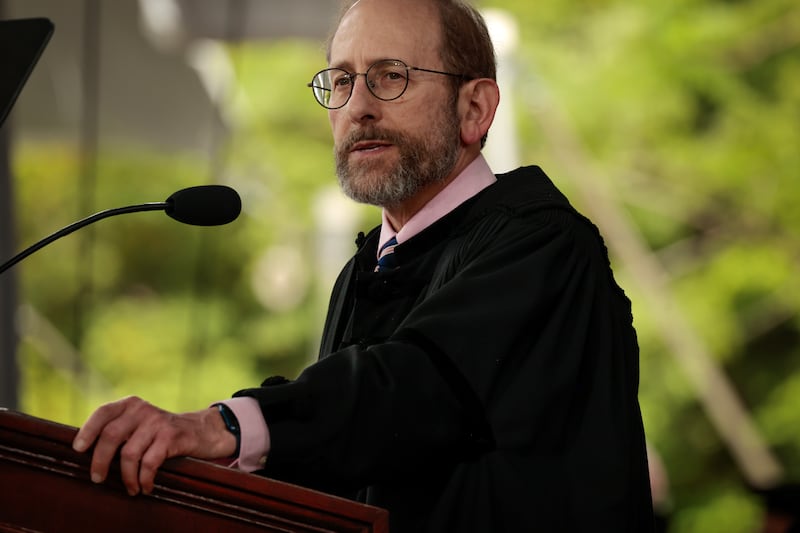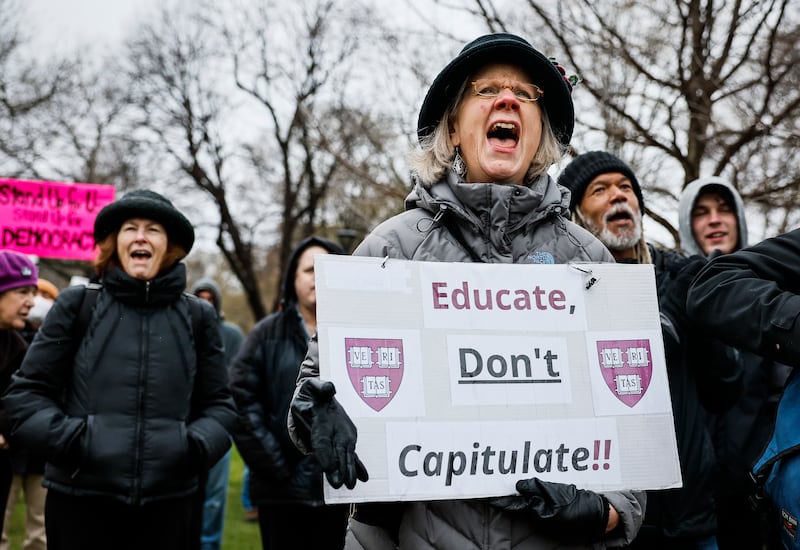Harvard has resorted to begging rich donors for money after President Donald Trump froze $2.26 billion in federal funds from the university.
“This is a critical time for Harvard, specifically, and for higher education, more generally,” Faculty of Arts and Sciences Dean Hopi E. Hoekstra wrote in an email obtained by The Harvard Crimson.
The school’s president, Alan Garber, is also tapping the school’s biggest donors, which include businessman and former New York City mayor Michael Bloomberg, hedge fund manager John Paulson, and lawyer and businessman David Rubenstein, the Wall Street Journal reported.
Hoekstra also offered to meet personally with Harvard College Fund Executive Committee members—a group of key donors—“to discuss your perspective on the road forward for the FAS.”
The move comes just three hours after Garber made it clear he would defy the White House’s recent demands.
On April 11, the Trump administration presented a set of demands to the Ivy League’s wealthiest university as part of an ongoing investigation by the Joint Task Force to Combat Anti-Semitism. These demands included dismantling diversity initiatives, banning mask-wearing, and committing to “full cooperation” with the Department of Homeland Security (DHS).
The administration also pushed for Harvard to strip recognition from pro-Palestine student groups, audit its academic offerings for ideological diversity, and expel students involved in a 2024 pro-Palestine protest-related incident at Harvard Business School.

But, in an email on Monday, Garber informed colleagues that the university would not comply with the White House’s demands.
As a result, on April 14, the Trump administration’s Joint Task Force to Combat Antisemitism announced it would halt $2.2 billion in long-term grants and suspend $60 million in multi-year contracts after Harvard became the first major university to defy the White House’s call for concessions. Trump has also threatened the school’s tax-exempt status.
Rallying support from Harvard’s wealthy alumni has proven difficult, as opinions are sharply divided.
Some major donors are pushing the university to find common ground with the Trump administration, urging faster action to protect the civil rights of Jewish students.

Others support Harvard’s refusal to comply with federal demands for sweeping cultural changes, including eliminating diversity programs. These alumni are increasing their donations—or giving for the first time—expressing pride in Harvard’s decision to stand firm where others have compromised.
“I almost whooped in my seat,” Eric Havian, a San Francisco lawyer and Harvard Law School alum, told the Journal. The fact that the school would not waver in its stance, combined with the knowledge that he hadn’t donated to his alma mater in more than 20 years, prompted Havian to make a five-figure donation.
Jim Ehrman, a 76-year-old lawyer from Napa, California, told the Journal in an email that he totaled his donations to Harvard over the past decade—then matched that amount twice over with a single four-figure gift this week.
“Far from being big enough to even be a rounding error, I am convincing myself that I am making a statement in support of Harvard’s ‘No’ to Trump,” Ehrman said.
Between Monday afternoon and 9 a.m. Wednesday, after Harvard announced it would resist the administration’s demands, the university received nearly 4,000 online donations totaling $1.14 million, according to The Harvard Crimson.
However, a university spokesperson declined to tell the Journal whether Harvard might tap more of its $50 billion endowment—an approach used during the 2008–2009 financial crisis—to offset potential funding losses.
The post Harvard Turns to Billionaire Donors in Its War Against Trump appeared first on The Daily Beast.



















